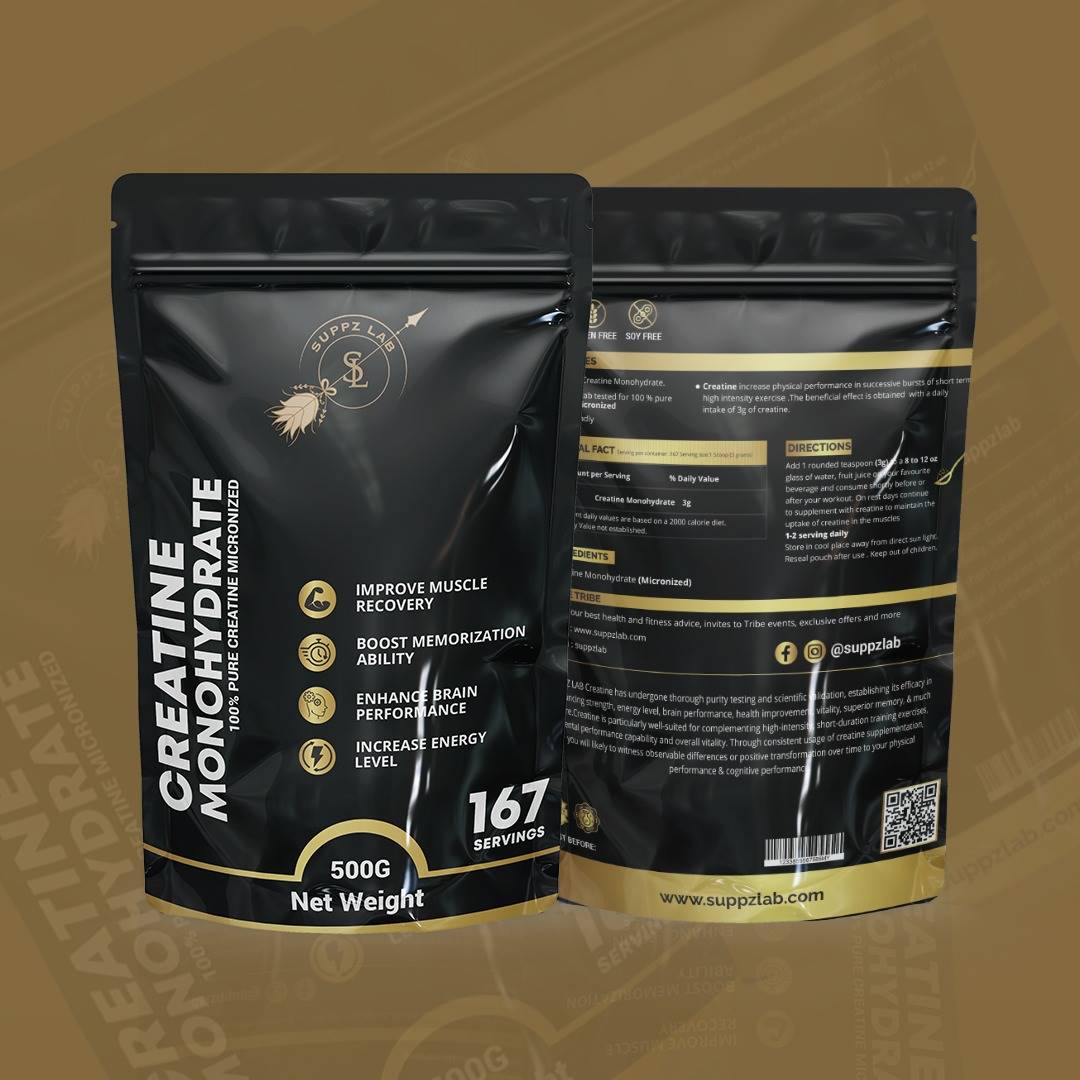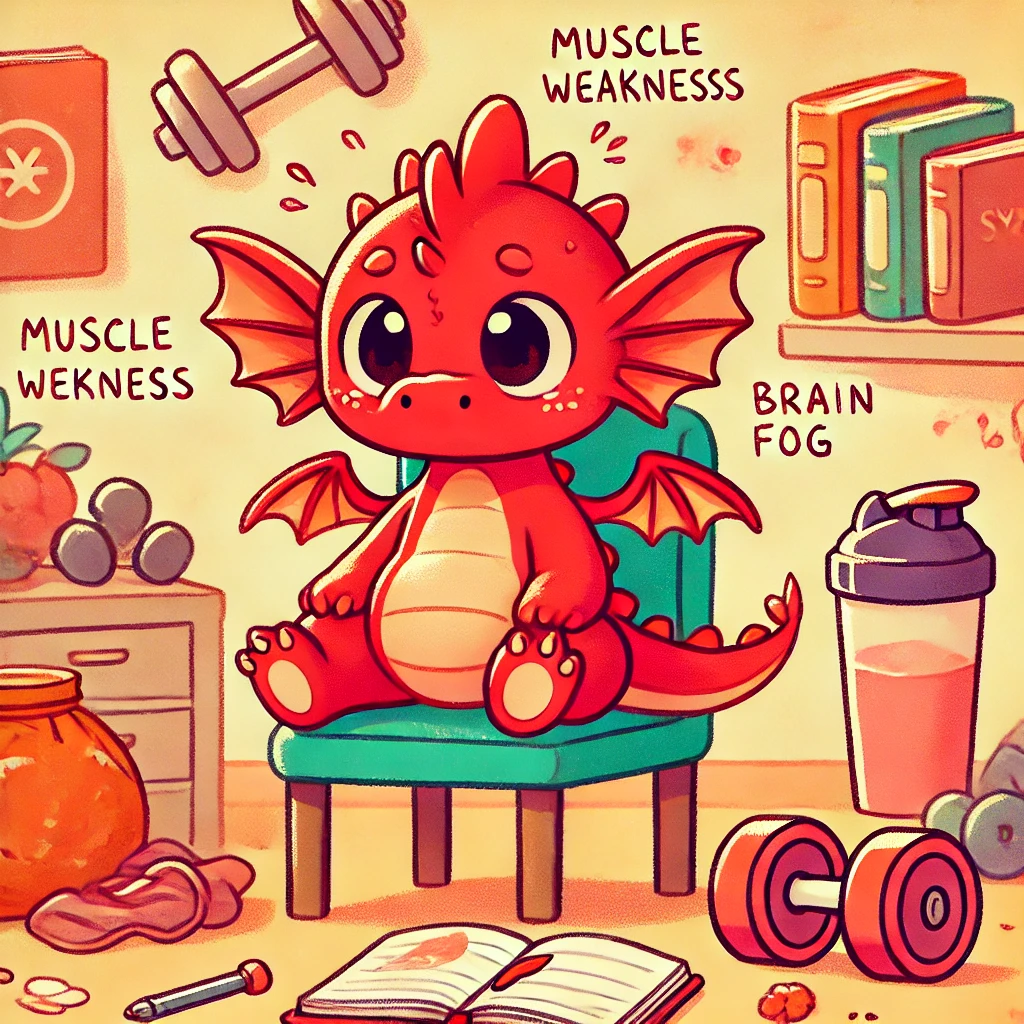- What is Creatine ?Creatine is a naturally occurring compound crucial for energy production during short bursts of high-intensity activities. Found in foods like red meat and fish, it is also synthesized in the body from amino acids. Widely used in sports and fitness, creatine supplements, with creatine monohydrate being the most common form, aim to enhance strength, increase lean muscle mass, and improve exercise performance. Stored in muscles, creatine aids in the replenishment of adenosine triphosphate (ATP), the primary energy source for cells, facilitating sustained effort during activities such as weightlifting and sprinting. Generally considered safe, it is essential to consult with a healthcare professional before incorporating creatine or any supplement into one's regimen, especially for individuals with underlying health conditions.
- Is creatine safe to use?
Yes, creatine is typically regarded as safe for most people when used at appropriate amounts. A lot of evidence supports both its effectiveness and safety in increasing sports performance and boosting the development of muscles. Individuals with pre-existing renal diseases ought to refrain from creatine supplementation. Before beginning any new supplement program, contact a healthcare expert, particularly if you have existing health issues or are using medicines, to confirm creatine is suitable for your individual circumstances.
- Can creatine be taken on an empty stomach?
Yes, you can take creatine on an empty stomach if that's convenient for you. It's absorbed well whether taken with or without food. If it doesn't cause any discomfort, it's perfectly fine. Just remember to follow recommended doses, stay hydrated, and if you have health concerns, it's a good idea to check with a healthcare professional before starting creatine or any supplement.
- Can I take creatine with other supplements?
Yes, you can take creatine with other supplements, like protein powders and vitamins. It's generally safe, but it's smart to check with a healthcare professional to make sure it's suitable for you. Stick to recommended doses for each supplement, and don't forget to stay hydrated, especially when using creatine. Keeping a balanced approach with a healthy diet and lifestyle is key for overall well-being.
- How should I take creatine?
Adding Creatine to your diet is often divided into two phases: loading and maintenance. Individuals typically take 20 grams of creatinine each day, split into four 5-gram doses, for 5-7 days during the loading period. This phase rapidly absorbs the muscles with creatine. Following the loading period, an ongoing dosage of 3 to 5 grams per day is indicated to keep creatine levels within the muscles up. Creatine may be used with juice, water, or shakes with protein. It can be taken either with or without food, but the time is primarily determined by personal desire. It is critical to stay hydrated when using creatine supplements, so do drink lots of water.
- Can creatine damage my health?
Creatine is generally considered safe when used as directed for improving athletic performance and muscle strength. However, individuals with pre-existing kidney conditions should consult with a healthcare professional, as excessive creatine consumption may potentially strain the kidneys. Some individuals may experience mild gastrointestinal discomfort, like bloating or cramping, though these effects are typically temporary. It's important to follow recommended dosages and consult with a healthcare professional before incorporating creatine into your regimen, especially if you have underlying health conditions or are taking medications. Seeking personalized advice can help address specific health concerns and ensure that creatine supplementation aligns with your individual circumstances.
- Can old or sedentary people use creatine monohydrate?
Yes, Creatine monohydrate can be beneficial for older or sedentary individuals, offering potential advantages beyond its well-established role in athletic performance. Studies suggest that creatine supplementation may help maintain or increase muscle mass and strength, which is particularly relevant in preventing age-related muscle loss and promoting better mobility. Additionally, there is ongoing research indicating potential benefits for bone health and cognitive function.
- Can creatine cause hair loss?
When taking creatine, the levels of the hormone DHT increase and DHT alters hair growth by accelerating the cycle of each of the hair follicles, which can lead to them falling out. Hence, after the increase in these DHT levels was discovered, the possibility was raised that taking creatine could lead to hair loss.
Dihydrotestosterone (DHT) is a hormone-based on testosterone, the main sex hormone of the male reproductive system. Besides its function as a sex hormone, testosterone always plays an important role in the formation of muscle mass and body hair. This is why a significant number of men are hairier than most women.
- Can creatine supplements be taken alongside a vegetarian or vegan diet?
If you're following a vegetarian or vegan diet, you can still benefit from creatine supplements. While creatine is naturally found in higher amounts in animal products, creatine supplements, often in the form of creatine monohydrate, offer a convenient and synthetic source for those on plant-based diets. These supplements are free from animal-derived ingredients. Just like anyone else, it's important to stick to recommended doses and, if you have any health concerns, consulting with a healthcare professional is a good idea. And don't forget to stay well-hydrated when using creatine supplements—it helps maximize their effectiveness.
- Is creatine supplementation beneficial for older adults?
Creatine can be good for older adults. It helps with muscle strength and performance, making it easier to move around and stay active. When combined with exercise, creatine can improve muscle strength and power. There's also some research suggesting it might be good for the brain, helping with cognitive function. Before trying it, it's a good idea for older adults to talk to a doctor to make sure it's right for them, especially if they have health issues or take medications.





